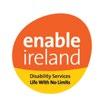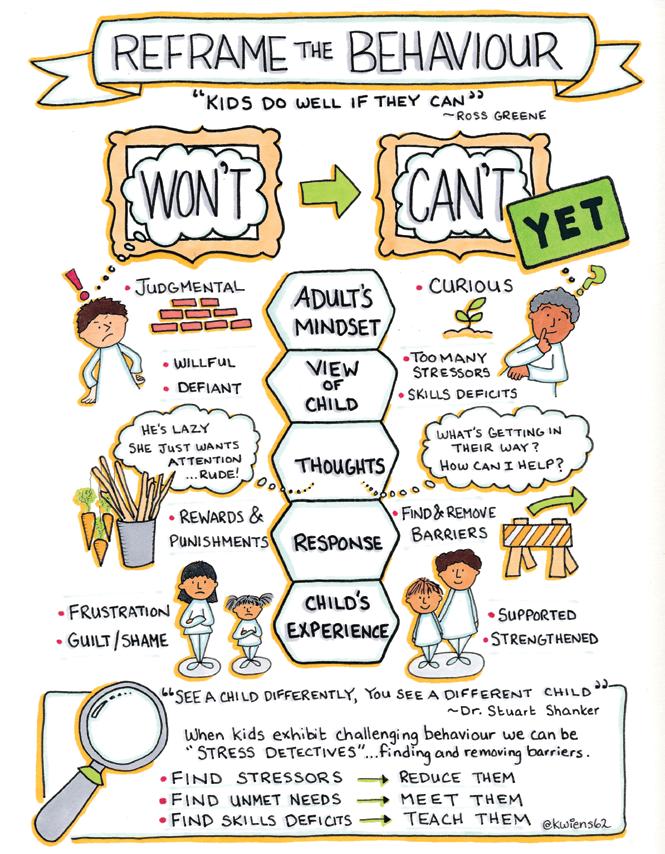Meath Emotionally Based School Avoidance Resource Pack
Information for schools, students and parents/guardians and carers

A collaboration between Meath CYPSC, TESS, NEPS, Navan SCP, HSE Primary Care Psychology, Meath CDNTs, NYPD, Meath CFSNs, LMETB Youthreach, HSE CAMHS, YWI Meath, Meath Partnership, JIGSAW Meath and Meath Springboard Family Support Services

Design: Flavour Design Studio — https://flavour.design
Imaginery: Canva, Freepik, Vecteezy, Kristin Weins & The MEHRIT Centre















Meath Emotionally Based School Avoidance Resource Pack
Information for schools, students and parents/guardians and carers
A collaboration between Meath CYPSC, TESS, NEPS, Navan SCP, HSE Primary Care Psychology, Meath CDNTs, NYPD, Meath CFSNs, LMETB Youthreach, HSE CAMHS, YWI Meath, Meath Partnership, JIGSAW Meath and Meath Springboard Family Support Services
Acknowledgements
School avoidance is a challenge that confronts some students and parents/guardians/carers and all schools sooner or later. Early recognition and intervention are key to prompt resolution. Where the problem persists or becomes complex, schools often seek the advice and support of outside agencies. However, navigating the system (for example knowing who to contact and when) can pose its own set of challenges.
To this end following a need highlighted through the Meath Child and Family Support Networks, a number of agencies in Co. Meath have joined to produce this Resource Pack for schools, students and parents/guardians/carers. We acknowledge with gratitude the contribution of all agencies.
We also acknowledge with gratitude the authors of the ‘Roscommon School Refusal Resource Pack’ and the ‘Wicklow School Refusal Pack’ who allowed us to borrow heavily from their document and to the authors of ‘School Refusal, Good Practice Guide for Schools’ from whose document the Roscommon authors borrowed heavily.
The suggestions and strategies outlined in this pack are not exhaustive. However, it is hoped that the pack will provide some guidance and support to students, parents/guardians/carers and teachers.
The Meath Emotionally Based School Avoidance Resource Pack was funded by Meath CYPSC from the DECDIY BOBF Fund 2022.
4
Glossary of Terms
CAMHS — Child and Adult Mental Health Services
CDNTs — Children’s Disbility Network Teams
CYPSC — Children and Young People’s Services Committee
CFSN — Meath Child and Family Support Network
EWO — Education Welfare Officer
EWS — Education Welfare Service
HSCL — Home School Community Liaison
HSE — Health Service Executive
ISS — Inclusion Support Service
NCSE — National Council for Special Education
NEPS — National Educational Psychological Service
PC Psychology — Primary Care Psychology
SCP — School Completion Programme
SENO — Special Education Needs Organiser
SNA — Special Needs Assistant
TESS Tusla Education Support Service
TUSLA — Child And Family Agency
5
Foreword
This Resource Pack is based on current knowledge in this area. It is intended as a guide only. Not all the suggestions here will apply to any one student or situation.
MEATH SCHOOL AVOIDANCE PATHWAY
The resource pack was designed to provide schools, students and parents/guardians/carers with a School Avoidance Pathway. The pathway was developed by services working with young people who are experiencing difficulties attending school for various reasons. It is hoped that this pathway and resource pack will provide a guide for schools and parents/guardians/carers on the best way to manage school avoidance and the relevant services that may be of assistance.
School avoidance often causes high levels of distress for families and can be very difficult for schools to manage. Early intervention, clear planning and good communication between schools, families and professionals is key. When a difficulty attending school becomes entrenched it is often much harder to work with than if it is identified early and intervention plans are put in place.
The pathway recognises the importance of early intervention and the key role that school has in identifying and intervening in this issue. The pathway guides families and schools on how to progress with early intervention and what to do if this intervention isn’t working and professional support is required.
6
Data Protection — Regulation EU 2016/679 of the European Parliament and of the council of 26th April 2016, which has come into force in Ireland on the 25th May 2018, replacing the existing data protection framework under the EU Data Protection Directive where data pertaining to an individual is protected.
Table of Contents Acknowledgements 4 Glossary of Terms 5 Foreward 6 What is school avoidance? 8 What causes school avoidance? 9-11 Information for parents/guardians and carers on Possible Precursors to School Avoidance 12-16 Checklist for parents/guardians and carers 14 Resources for parents/guardians and carers 16 The Child/Young Person 17 Resources for a Young Person 18 FAQ’S For Young Person 19 Information for Schools 20-33 Signs that may be observed in school? 20 Meath School Avoidance Pathway 21 Information Gathering: School & Parental Checklist 22-24 School Based Programs and Interventions 25 Attendance 26-27 What can schools do when someone is identified as school avoiding? 28-30 Sample Return to School Plan 32-33 What if this is not working or the plan has not progressed? 34 School Avoidance and ASD 35 APPENDICES 37 Appendix A: Useful Contacts 38-45 Appendix B: Step by Step Meitheal Guide 46 Appendix C: Tips/Resources for Teachers 47-49 References and Bibliography 50 7
1. What is school avoidance?
School avoidance is a systemic difficulty, and refers to student, parents/guardians/ carers and school challenges where the student finds it difficult to attend or stay in school. Parents/ guardians/carers and schools find it difficult to support the young person, which often results in the request for involvement of other services. School avoidance may happen at any age but most typically occurs in children 5-7 years and/or 11-14 years of age. Generally, the student refuses to attend school and experiences significant
distress. School avoidance differs from truancy in that the young person is at home with the knowledge of the family despite their efforts to enforce attendance. The behaviour is differentiated from parents/guardians/ carers who deliberately withdraw their child from school and from youths experiencing difficult circumstances such as homelessness that prevent adequate school attendance. There are many reasons why a student may refuse to attend school or remain in school.
FAMILY
Family structure changes
Physical and mental health
Family feuds
Violence
Abuse
Marital issues
Parental Capacity
SCHOOL AVOIDANCE
SCHOOL ISSUES
Bullying
Cyber Bullying
School climate
Change in staff
Academic difficulties

Cultural differences
CHILD
Sensory processing difficulty
Health issues
Social problems
Peer rejection
Learning difficulties
Anxiety, Depression
Safeguarding Concerns
ASD, ADHD
MEATH EMOTIONALLY BASED SCHOOL AVOIDANCE PACK 8
2. What causes school avoidance?
Factors may include:
Student Temperament
Death in the Family
Environmental Factors
Parent/guardian and carer Mental or Physical Health
Coping Skills
Parents Separating
Moving House
Anxiety
Jealousy of new sibling
Academic pressures, fears or dislike of subject
Peer Problems
Poor relationships with teachers
Long term illness
School Climate
Sexual Identity
Cultural Differences
ULLYING can also be a cause of school avoidance. Bullying is unwanted aggressive behaviour among schoolaged children involving a real or perceived power imbalance that is repeated or has the potential to be repeated over time. Bullying can include threats, intimidation, and/or attacking someone physically or verbally.

Signs that a young person may be a victim of bullying:
Mood Changes
Unexplained injuries
Lost or damaged clothes, books, electronic items
Decline in academic performance
Complaining of headaches, stomach pain, feeling sick
Skipping meals, binge eating, not eating lunch at school
Nightmares and trouble sleeping
Sudden loss of friends or avoidance of social situations
Decline in self-esteem or feeling helpless
New onset of self-destructive behaviors: running away, engaging in deliberate self-harm, suicide threats.
Bullying can also occur on computers, mobile phones and tablets and is known as Cyber Bullying.

MEATH EMOTIONALLY BASED SCHOOL AVOIDANCE PACK 9
2.1 WHAT ARE THE FACTORS THAT REDUCE SCHOOL AVOIDANCE.
Secure relationship with parent
Co Parenting — consistency
Keeping routines
Understanding of school avoidance

Supportive climate
Positive teacher-student relationship
FAMILY SCHOOL STUDENT SOCIAL
Temperament
Resilient — good coping skills
Ability to make friends
Self identity
Routines
Ethnicity
Exposed to low levels of stress
Cooperation between those involved in helping the child.
MEATH EMOTIONALLY BASED SCHOOL AVOIDANCE PACK 10
2. 2 HOW DOES SCHOOL AVOIDANCE COME ABOUT?






The following diagrams illustrate the cycles of thoughts and feelings that can lead to a student






When school avoidance starts
BEHAVIOURS
Avoidance to get ready for school.
Avoidance to attend school, leave the house, etc...
Avoidance of school related situations and people.
Crying, hiding, tantrums, etc.
FEELINGS
Anxiety, fear, embarrassment, inferiority, depression, uncertainty, insecurity, isolation.
BEHAVIOURS
Avoidance to get ready for school.
Avoidance to attend school, leave the house, etc...
Avoidance of school related situations and people.
Crying, hiding, tantrums, etc.
FEELINGS
Anxiety, fear, embarrassment, inferiority, depression, uncertainty, insecurity, isolation.
THOUGHTS
Mammy is sick and might go to the hospital if I’m not here.
I’m safe at home.
I don’t have to worry about not being able to do the work.
No one can laugh at me when I’m at home.
initially avoiding to attend school and continuing to refuse to attend. or
THOUGHTS
Everyone will be asking me questions about why I haven’t been to school.
I won’t know the work because I haven’t been attending.
My friends won’t want to mix with me anymore.
MEATH EMOTIONALLY BASED SCHOOL AVOIDANCE PACK 11
3. Parents/guardians and carers
Be on the look out for:
Frequent tearfulness/ distress/ pains in tummy/ bedwetting/ headaches/ signs of distress on Sunday nights or Monday mornings.
• Distress or saying they feel sick after a school break.
• Frequently asking the teacher to ring their parent/ wanting to go home/ saying that they are feeling sick.
• Challenging behaviour/ having tantrums about going to school, or before school in the morning.
• Prolonged difficulties (anxieties) for a young person when mixing with others (e.g. going outside to play; going to after school activities, parties, etc.).
• Pre-occupation with being organised for school
• A family stressor (e.g. parental separation or bereavement) can trigger some anxious behaviours/ feelings about leaving home, or leaving a parent in order to attend school. (Providing the young person with a calm listening ear, and letting them know that you understand, but that they still need to attend school, can help them get through a difficult period).
Adolescents may also show the following behaviour:
Worry or fear related to school
Sleeping difficulties and fatigue

Change of mood, negativity towards school, subjects or teachers
Increased self — consciousness
Lack of engagement with school activities, outings, trips
Poor sense of school belonging
MEATH EMOTIONALLY BASED SCHOOL AVOIDANCE PACK 12
3.1 WHAT CAN YOU DO TO HELP WITH EARLY SIGNS OF SCHOOL AVOIDANCE?
Speak calmly with the young person. Let them know you understand.
Encourage them to talk to you about how they feel.
Be reassuring and encourage positive statements e.g. ‘I can do this’, ‘school was good today’.
Praise them for making the effort to go to school.
*Model coping behaviour as best you can.
Be consistent and present a united front.
Establish and maintain good evening and morning routines.
Encourage relationships outside of school.
Monitor their use of online screen time.
Help with organisation of homework, school bag and uniform.
Listen but do not reinforce their fear/anxiety.
Use the checklist on the following page to help you.
If your child is still avoiding going to school what else can you do?
Keep a record of days your child avoids to go to school
Help your child identify stressors
Ask for homework to be sent home
Consider other educational alternatives
Stay calm and help your child build resilience by;
1. Encouraging your child to problem solve
2. Promote self esteem by encouraging your child to set achievable goals
3. Don’t have all the answers
4. Let your child make their own mistakes. This will help them learn that failure is not the end of the world.
*RESOURCE PACK ON COPING BEHAVIOUR; https://hbtg.org.uk/wp-content/uploads/2015/06/ KAN-Emotional-resilience-toolkit.pdf (as amended)
And remember YOU ARE NOT alone!
Who can help you?
SCHOOL: Contact your child’s teacher or School Principal. They can begin to support the student and consult with their NEPS psychologist.
PROFESSIONAL SERVICES: Go to your GP and explore whether there is a primary care child psychology service in your area and if so, seek an appointment.

MEATH EMOTIONALLY BASED SCHOOL AVOIDANCE PACK 13
Checklist for parents/guardians and carers
TASK YES/NO
Reassure and encourage your child.
Problem solve ways to cope.
Help find and discuss some positive aspects of school that they enjoy.
Have the parent who is better at promoting attendance take the child to school.
Young person accompanied to school by friend/friends.
Friend or identified teacher to meet your child.
Deal constructively with family concerns and parenting issues.
T.V., laptops, gaming devices and the internet are not accessible when not in school.
Structure maintained outside of school.
Use school timetable at home.
Ensure school books are at home.
Be mindful of your interactions with your child during ‘school time’ at home.
Keep you child home only when they are sick.
COMMENTS
MEATH EMOTIONALLY BASED SCHOOL AVOIDANCE PACK 14
3.2 WHEN TO SEND YOUR CHILD TO SCHOOL
Children will get sick from time to time but it’s important to manage the number of days they
miss. The following are just guidelines. If you are unsure, please meet with your GP.
SEND YOUR CHILD TO SCHOOL: KEEP YOUR CHILD AT HOME:
Parent/Guardian/Carer is Sick or Hospitalized
Plan ahead where you can. Ask a friend, relative or spouse to take your child to and from school.
Child avoids going to School
Talk to your child, they may be experiencing bullying, be behind in schoolwork, or not getting along with others.
Chronic Disease or Illness
Speak with your school about your child’s condition and develop a plan. School personnel can assist both you and your child.
Cold Symptoms
If your child does not have a fever and is able to participate in school activities send them to school.
Head Lice
If your child has lice (intense itching), they can return to school after an initial treatment.
Strains, Sprains and Pains
If your child can walk, talk and eat he or she should be in school. If pain is severe or ongoing, consult a GP.
Menstrual Issues
Most of the time menstrual issues should not be a problem. If they are severe consult a GP.
Fever
Keep your child at home if they have a fever. If the fever does not go away after 2-3 days consult a GP.
Diarrhoea
If your child seems ill, has a fever or diarrhoea, keep them at home.
Vomiting
If your child has vomited twice or more in 24 hours, keep your child at home until the vomiting has stopped for 24 hours.
Coughing
If your child has severe, rapid coughing or wheezing keep your child home and contact a GP.
Head Lice
Intense itching, may feel like something is moving. Your child can return to school after treatment.
Conjunctivitis (Pink Eye)
The white of the eye is pink with a thick discharge. Contact GP for medication/treatment before sending the child to school.
Rash With Fever
If a rash spreads quickly or is not healing keep your child at home and contact your GP.
Sore Throat
For a sore throat with fever, stomach ache, and/ or red, swollen tonsils keep your child at home and contact a GP.
MEATH EMOTIONALLY BASED SCHOOL AVOIDANCE PACK 15
Resources for parents/guardians and carers:
”Help! I’ve got an Alarm Bell going off in my head! How panic Anxiety and Stress affect your body”, by K.L Aspden. Jessica Kingsley Publishers.

”Overcoming your child’s fears and Worries” by Cathy Cresswell and Lucy Willetts, from the CBT overcoming series. Publishers Constable and Robinson.
Does Your Child Need Help With Anxiety
https://www.tusla.ie/services/family-community-support/parentinginformation/parenting-information-fsa/ (as amended)
For suggestions on Apps on mindfulness and relaxation: http://parentingchaos.com/anxiety-apps-kids/ (as amended)
Special Educational Needs:
https://www.autism.org.uk/about/in-education/exclusion/ school-refusal-strategies.aspx (as amended)
Promoting Emotional Resilience: A Resource Pack: https://hbtg.org.uk/wp-content/uploads/2015/06/ KAN-Emotional-resilience-toolkit.pdf (as amended)
Screen Time Advice for Parents
https://www.webwise.ie/parents/screen-time-advice-for-parents/ (as amended)
ASD Supports
https://asiam.ie/ (as amended)
16
MEATH EMOTIONALLY BASED SCHOOL AVOIDANCE PACK
4. The Child/Young Person
Everyone has a responsibility to help. This includes your child too. Help them draw up a plan and you can do it together.
Here are some ideas that might help: DRAW UP CHECKLISTS.
Did you know?
Morning routines and attendance patterns are set in September. So set yourself up for success by getting off to a smooth start in September.
Here’s a ‘Nightime Checklist’ that you might find useful.

NIGHTIME CHECKLIST
Choose and lay out clothing and shoes.
Put any items that you need for school in your school bag (e.g. permission slips, books, journal, homework)
Make your lunch.
Set your alarm!
And a ‘Morning Checklist’ that you might find useful.
MORNING CHECKLIST
Get out of bed when your alarm goes off.
Have a good breakfast.
Leave yourself plenty of time to get to school.
Walk or cycle to school if you can.
Are You Anxious to Go to School? Advice from a Therapist.

https://www.youtube.com/watch?v=K3nCwYcwuHM (as amended)
Dealing with School Phobia & Anxiety. Hear a Young Person’s Experience.
https://www.youtube.com/watch?v=fqs1BuNyVY4 (as amended)
17
CHECK OUT THESE LINKS ON WWW.YOUTUBE.IE
MEATH EMOTIONALLY BASED SCHOOL AVOIDANCE PACK
Resources for a Young Person

MAKE YOUR OWN TRACKER (you can choose what you want to track, here are some examples).
School +
Attendance
= Good School Results
Set your own targets.
Week 1: I made it to school every day this week.
Week 2: I made it to school on time for the whole week.
Week 3: Attended full days for the whole week.
13 14 15 16 17
DON’T FORGET TO ASK FOR HELP.
Date Reason Date Reason Date Reason Date Reason Date Reason 1 2
4 5 Date Reason Date Reason Date Reason Date Reason Date Reason 7 8 9 10
3
11
Date Reason Date Reason Date Reason Date Reason Date Reason
MEATH EMOTIONALLY
SCHOOL AVOIDANCE PACK 18
BASED
FAQ’S For Young Person
ref: http://www.childrensrights.ie
Do I have a right to education?
Yes, the Government must make sure you receive a certain standard of education.
Do I have to go to school?
Yes, from the age of 6 to 16 years, or once you have finished three years of secondary school.
Do I have a right to be taught at home?
Yes, but your parent/guardian/carer must register you with the Tusla Alternative Education Assessment and Registration Service (AEARS) to ensure your education meets the required standard.
Do I have to go to school every day?
Yes. Your parent/guardian/carer must make sure that you go to school every day.
What happens if I am sick or have other reasons for not going to school?
Your parent/guardian/carer should contact the school to explain why. If you miss 20 or more days in a school year the school must tell the EWS. If there is no clear reason for your absence, the EWO may visit your home to help you improve your school attendance.
Do I have to do homework?
Each school sets its own rules and policies for homework.
Do I have to do tests and exams?
The law does not say that you must sit the Junior Certificate and Leaving Certificate. However, both are state recognised and the most common way to further education.
What happens if I get into trouble at school?
By law, every school must have a code of behaviour for students. The code of behaviour explains what will happen if you do not obey the school’s rules. The school must act fairly and give you a chance to have your say. Breaking school rules can result in: detentions, temporary exclusion from class, suspension.
What happens if I am suspended?
Suspension means you are not allowed to attend school for a set number of days. The school’s decision to suspend must be reflect the seriousness of what you have done.
What happens if I am expelled?
Expulsion means you cannot attend this school again. The Board of Management must inform EWS and wait 20 school days. The EWO will make sure you still get an education.
Can I appeal my suspension or expulsion?
Your parent/guardian/carer can appeal on your behalf to the Department of Education and Skills. An appeals committee will write to your parents/guardian/carer and to the school with the recommendations.
What should the school do if I am being bullied?
Tell your teacher, principal or trusted adult. Schools must have a policy for dealing with bullying that include; procedures for investigating and dealing with bullying; for helping those affected by bullying; strategies to prevent bullying happening.
Do I have a right to privacy in school?
Privacy in school means attending school without any interference by the school in your private life, your personal space, your body or your belongings. Schools can, however, search your bag if it’s believed you are carrying illegal substances or alcohol with consent from both you and your parent/guardian or carer. Your locker is school property but you are entitled to privacy while the locker is assigned to you. A teacher may search your locker if they have a good reason. They must tell you the reason for the search.
Do my parents have a right to know how I am doing in school?
Yes, they have a right to be kept informed about your education and behaviour in school.
Do I have a right to see my school records?
When you are 18 the school has to make school records available if you ask for them. If you are under 18, your parent/guardian/carer can access school records on your behalf.
MEATH EMOTIONALLY BASED SCHOOL AVOIDANCE PACK 19
5. Information for Schools
SCHOOL IS CENTRAL IN PREVENTION, EARLY IDENTIFICATION, AND CONTINUING MANAGEMENT OF SCHOOL AVOIDANCE.
5. 1 SIGNS THAT MAY BE OBSERVED IN SCHOOL:
Most young people are occasionally reluctant to go to school or have some anxiety about certain activities. School avoidance, however, is a more persistent problem that might be characterised by some of the following;

• frequent complaints of illness before or during school, such as stomach aches, headaches, dizziness or fatigue (These problems often quickly fade if the young person is allowed to stay home)
• difficulty attending school after weekends or holidays
• long, unexplained absences from school
• periodic absences or missed classes for which no explanation is given
• frequent lateness to school or an adolescent who misses the bus every day
• difficulty attending full days
• struggling with breaks and lunch times
• avoidance to separate from parent/guardian/ carer
• evidence of underachieving
Be on the Look Out For:
It is vital that parents/guardians or carers and schools work together to understand the young person’s reason for school avoidance. Open and continuous communication is key to ensure appropriate supports are in place to enable the young person/child to return to full attendance. A school avoidance pathway has been developed to provide a guide for schools and parents/ guardians and carers on the best way to manage school avoidance.
MEATH EMOTIONALLY BASED SCHOOL AVOIDANCE PACK 20
5.2
MEATH SCHOOL AVOIDANCE PATHWAY
SCHOOL AVOIDANCE IDENTIFIED AS A CONCERN BY PARENTS/GUARDIANS/CARERS OR SCHOOL
INFORMATION GATHERING
Pre Referral Checklist & School and Parental Checklist
FIRST POINT OF INTERVENTION
• School, family and student based intervention.
See sample interventions and strategies.
Intervention agreed and resource pack shared with parent/guardian/carer.
Record of interventions and outcomes of these interventions to be noted.
Consultation with NEPS to be considered.
Review meeting.
PROGRESS MADE
If mild/moderate mental health needs identified refer to PC Psychology.
If moderate/severe mental heath needs identified GP referral to CAMHS.
NO PROGRESS
• Official referral to EWO
• Consultation with NEPS
• Record of school interventions kept by school





• Identify additional support services





e.g. Family Support Services, ISS/NCSE, Youth Services, Meitheal process (Appendix B)
Action Plan and date for follow up meeting set.
MEATH EMOTIONALLY BASED SCHOOL AVOIDANCE PACK 21
Information Gathering: School & Parental Checklist
A high number of yes responses indicate a greater risk.
Name of Young person:
Date:
Reluctance to leave the house in the mornings
Late for school
Absent for part or whole days ENVIRONMENTAL
Significant life events (e.g.: moving house/school, separation of parents/family members, additions to the family, death of a pet) Please specify
Young person living in more than one home/temporary accommodation
Parental involvement with education (e.g. homework, parent teacher meetings, good communication with school)
Practical/financial challenges in getting to school
LEARNING NEEDS
Inability to problem solve
Organisational difficulties
ATTENDANCE YES NO N/A COMMENTS
YES NO N/A COMMENTS
YES NO N/A COMMENTS
MEATH EMOTIONALLY BASED SCHOOL AVOIDANCE PACK 22
Information Gathering: School & Parental Checklist
Homework not done/incomplete on a regular basis
Difficulties working under pressure/ processing difficulties
Specific learning difficulty
Please specify
Not achieving learning potential
Avoidance of particular school activities/subjects
Bullying
Fallen out with friends/ difficulties with peer relationships
Social communication difficulties
Not independent for age
Struggles during unstructured times
Lack of active engagement in social and leisure outlets
EMOTIONAL WELL BEING
Often appears tired
Often appears to be lacking in interest/ motivation
Demonstrates low self esteem
Shy, quiet or passive
YES NO N/A COMMENTS
SOCIAL YES NO N/A COMMENTS
YES NO N/A COMMENTS
MEATH EMOTIONALLY BASED SCHOOL AVOIDANCE PACK 23
Information Gathering: School & Parental Checklist
Had a serious illness or has a medical condition
Complained of sickness or headaches
Had rapid weight gain or loss
Changes in eating habits
Other
Completed by:
(please include school, parent/guardian and carer, young person’s name as appropriate)
School Representative
Parent/Guardian/Carer
Young Person
EMOTIONAL WELL BEING YES NO N/A COMMENTS
Appears worried or anxious
that
of involvement in school
PHYSICAL WELL BEING YES NO N/A COMMENTS
Displays behaviours
challenge Lack
life
MEATH EMOTIONALLY BASED SCHOOL AVOIDANCE PACK 24
6. School Based Programmes and Interventions
WHAT CAN BE HELPFUL FOR ALL STUDENTS IN SCHOOL?
6.1 PROMOTION OF PARENTAL INVOLVEMENT
An active and positive relationship between parents/guardians/carers and school is essential to ensure a quick collaborative response when difficulties occur. Channels between parents/ guardians/carers and the school should remain open in order to share information in terms of the student’s social, emotional and educational development. This open communication system ensures that where concerns arise, they can be dealt with efficiently.
Parents/guardians and carers may sometimes feel it is hard to connect with their young person around school issues. Some ways in which parents/ guardians and carers can get involved are listed below:
Checking in around homework.
Taking an interest in any projects which may have to be completed.
Attending school events such as parent-teacher meetings, fundraising events or school performances.
Keeping communication active with the young person’s class teacher/year head in the form of a communication notebook or through 1:1 face to face meetings.

Being invited in to help in the class with making resources, career days or assisting on school tours.
Supporting attendance at after school activities.
Communicating with Home School Liaison Officer and School Completion Staff (where available).
It is important that parents/guardians and carers receive consistent information and advice in terms of encouraging regular school attendance and initial steps to take should a decrease in attendance be noted.
6.2 GENERAL TESTING
It can be difficult to keep track of a large number of students within the school. However, in order to ensure that young persons do not “fall through the net”, it is suggested that regular testing in the areas of reading, writing, spelling, numeracy and behaviour (including social skills) are undertaken.
6.3 FOR PRIMARY SCHOOLS
Special Education Needs — A Continuum of Support
Guidelines for Teachers
Resource Pack for Teachers
https://assets.gov.ie/40642/674c98d5e 72d48b7975f60895b4e8c9a.pdf
Behavioural Emotional and Social Difficulties — A Continuum of Support
https://assets.gov.ie/40684/97bbea80d 96b4057bf3f1f01107c7db4.pdf
6.4 FOR POST PRIMARY
SCHOOLS
A Continuum of Support for Post Primary Schools
Guidelines for Teachers
Resource Pack for Teachers
https://assets.gov.ie/40645/20f442fa4149 40f894506ed717d7f635.pdf
These resources are also available on: www.gov.ie/education
MEATH EMOTIONALLY BASED SCHOOL AVOIDANCE PACK 25
6.5 ATTENDANCE
Monitoring attendance is crucial in terms of identifying early warning signs for school avoidance. This is an area that all schools are
Areas which may need checking include:
Medical difficulties — are there underlying medical reasons for the student avoiding school?
Social reasons — Gain a greater understanding of the student’s social circle or lack of.
Educational reasons — is the student




obliged to adhere to and it is important that this information is utilised effectively.
having difficulty in particular subjects, or overall?




Environmental reasons — is there something in the environment causing distress for the student?
Functions of School Avoidance — are there other reasons the student is avoiding school?
FUNCTIONS OF SCHOOL AVOIDANCE
NEGATIVE REINFORCEMENT
Escaping bad feelings related to teachers, difficult subjects, class or school based situations.
Escaping social situations e.g., having to read in front of the class, walking past older students, peer group challenges.
Collecting information and assessing the above areas can lead to a more in-depth, focused intervention which is tailored to the
POSITIVE REINFORCEMENT
Seeking one to one attention from parent/ guardian and carer, prefer to be at home, needing reassurance from adults.
Pursuing reinforcers at home such as T.V., internet access, gaming, staying up late.
individual needs of the student. The Continuum of Support documents aim to assist schools in developing plans that support students.
MEATH EMOTIONALLY BASED SCHOOL AVOIDANCE PACK 26
6.6 SCHOOL BASED PROGRAMMES/ CURRICULUM
There are a number of available school programmes and interventions which can assist in either the creation or implementation of a plan for early or established school avoidance. These include:
Social, Personal and Health Education (SPHE)
Stay Safe
Social Skills Programmes, e.g. FRIENDS programme
The School’s Code of Behaviour (including incentive programmes to encourage positive behaviour such as regular attendance)
Health and Safety Policy
School based resilience training programmes
Teaching Mindfulness to all students
School Completion Programme supports and interventions where available
See Resources for parents/guardians and carers for more information.
6.7 WHEN NEEDS ARE IDENTIFIED POST SCREENING
As soon as a young person is identified, a plan should be implemented in a timely manner to ensure that difficulties do not escalate. School and Parental checklist are useful resources to help in this process.
Schools are encouraged to gather relevant background information, plan and evaluate as well as gather information on specific relevant interventions and resources available to them.
6.8 INVOLVEMENT OF OUTSIDE AGENCIES AND SUPPORT SERVICES
Sometimes, additional resources may be needed if a student has difficulties which involve the whole family. It is beneficial for schools to identify these needs and obtain further professional support when appropriate. Where there are difficulties with attendance, advice should be sought from the EWO and a referral to the EWS should be made. NEPS should also be consulted in this regard. A young person may be referred to Child and Adolescent Mental Health Service (CAMHS), Primary Care Psychology, Speech and Language Therapy, Occupational Therapy, and/or other agencies depending on specific presentation (see Appendix A). Where there is uncertainty as to which service is most appropriate and where there are unmet needs for the young person a request can be made directly to the Meitheal Process. A referral can also be made to Child Protection Social Work (TUSLA) if it is deemed that the young person’s needs are not being met by the parents/guardians/carers.
See Appendix A for support services and contact details.
NEPS SCHOOL AVOIDANCE RESOURCE
https://www.gov.ie/en/collection/84e52e-nationaleducational-psychological-service-neps-guidelinestips-and-/#managing-reluctant-attendance-andschool-avoidance-behaviour (as amended)
MEATH EMOTIONALLY BASED SCHOOL AVOIDANCE PACK 27
7. 1 INDIVIDUAL INTERVENTIONS
When a student is identified as having difficulty in attending school it is imperative to implement interventions as soon as possible. The longer a student is out of school, the harder it is to return to the routine of school.
The following process is advised:
1. Alert the parents/guardians/carers to the fact that there are concerns about school attendance.
2. Organise a meeting between school, parents/ guardians/carers and young person to identify and discuss the issues. Guidance Counsellors, Chaplains, Learning Support, HSCL, or SCP staff are often best placed to be a key support for the family. School avoidance is not always due to anxiety and a full understanding of the family and young person’s context should be sought by school.
3. Identify the cause of the school avoidance with the student and family (see School and Parental checklist). Once the reason for the school avoidance is understood it will be easier to build supportive interventions around this.
4. Learning or social needs may be identified and the school and family should seek to address these barriers with interventions, e.g. Resource, NEPS, SCP, buddy within school and so on.
5. A plan for re-entry to school should be agreed with the young person, their parents/ guardians/carers and the school team. Full school attendance may be appropriate for younger students or those in the early stage of school avoidance. A gradual return plan is often recommended for older students or students who are experiencing more severe anxiety or depression (see Sample Return to School Plan). The main focus of this plan is a gradual working increase in hours that the young person spends in the school environment. This plan should be agreed and signed up to by all relevant parties. Schools should follow the guidance in relation to reduced school days which can be found online at:
https://www.gov.ie/en/publication/63545-theuse-of-reduced-school-days/.
Schools can contact: reducedschoolday@tusla.ie should they have a query regarding reduced days.
6. If the student is not yet doing full days, time at home should be structured as if they were in school (e.g. uniform on, working on the subjects as per timetable, homework, reduced screen time).
7. An EWO and/or NEPS consult may be sought at this stage.
8. Teachers and school staff should be made aware of the plan and briefed on anxiety
7.
What can schools do when someone is identified as school avoiding?
Whole school effective practice Promote protective and resilience factors Awareness of ‘at risk factors’ Vigilance for possible indicators MEATH EMOTIONALLY BASED SCHOOL AVOIDANCE PACK 28
related issues if present e.g. talking aloud in class, pupils leaving the classroom unhindered. Staff should be advised not to quiz the student on absences or question why the student has not been in class.
9. The student should be helped to identify staff members they feel safest with who can support the student throughout the return process. Regular check-ins with that staff member can be useful for the young person to discuss their difficulties.
10. Any additional support strategies should be implemented as soon as the student begins the return to school, for example social skills programmes or extra tuition to catch up on missed work.
11. Identify a buddy or mentor to meet the student on their first day back. Returning to school activities can be daunting and a peer is best placed to help with this. This peer can help ensure the student is included in a group for lunches, is briefed on class work and remains close to them as a support over the return to school period. With the young person’s consent it may also be helpful to brief peers on the return to school and urge them to be supportive with no questioning as to why the student has been absent, whilst avoiding over-dramatising the situation.

12. Where possible, a quiet space should be designated for the young person to use as a relaxation room; this will encourage the student to stay in the school rather than leave when their anxiety is high. A designated staff member may be useful to help calm the young person if time out is needed (SCP staff or members of the care team where SCP support is not available). Time out cards may be a useful strategy to trial with the student. This will allow them to leave the classroom without significant disruption. If they are in possession of these cards and are in the hallways during class time, they can show this card without being unduly questioned.
13. Regular phone contact between parents/ guardians/carers and school is recommended in order to maintain the return to school plan.
14. A record of attendance and time spent in school should be kept by the school.
15. A review date for the return plan should be set ten school days from the initial plan being made and all steps implemented over this period. A record of intervention should be kept in case of referral onwards. A checklist of these steps is found in Section 4 and if an onwards referral to services is made, the checklist could be included.
16. Any successful work with an individual needs to be embedded in whole school systems. General good practice for promoting well being and positive mental health also applies to school avoidance. For a sample Whole School Audit for the promotion of emotional wellbeing;
https://www.education.ie/en/Publications/ Policy-Reports/wellbeing-policy-statementand-framework-for-practice 2018%E2%80% 932023.pdf (as amended)
MEATH EMOTIONALLY BASED SCHOOL AVOIDANCE PACK 29
7. 2 SPECIAL EDUCATIONAL NEEDS
When a student has special educational needs, and school avoidance is an issue, the following is important to have in place to facilitate a smooth re-engagement:
All teachers, SNAs and staff members have been briefed about anxiety related difficulties, social difficulties, learning difficulties or challenges at home.
Where the student’s learning needs have been identified, the student may need to be prioritised for interventions within school and/or a request for NEPS involvement.
A suitably resourced student support plan is implemented.
Review of school based anxiety management programmes where available, providing the student with the opportunity to learn about anxiety and how best to manage and cope.
REFERRALS TO THE EDUCATIONAL WELFARE SERVICE CAN BE SUBMITTED ONLINE VIA THE TUSLA PORTAL ACCESSIBLE AT :
https://portal.tusla.ie/Account/Login?ReturnUrl=%2f (as amended)
MEATH EMOTIONALLY BASED SCHOOL AVOIDANCE PACK 30

31 MEATH EMOTIONALLY BASED SCHOOL AVOIDANCE PACK
Sample Return to School Plan
PRIMARY SCHOOL
NAME OF YOUNG PERSON: DATE
TUESDAY
Arrive in school at 9.30 a.m., key person meets the student and together they work on an individual plan until break.
Stay in with 2 peers at break, after break go to class with them.
At lunch, student goes with 2 peers into the playground or to a quiet place to play. After lunch, student goes to library with key person for the afternoon.
WEDNESDAY
Arrive in school at 9.30, go to library with key person until break.
Student goes to playground at break with 2 peers and then on to class with them.
Go out to play at lunch with peers and attend class after lunch if ready.
THURSDAY
Arrive in school 9.30, go to library with SNA until break.
Meet friends in the playground at break (if ready) and attend classes until lunch.
Meet friends at lunch and attend afternoon classes.
FRIDAY
Arrive in school at 9.30 a.m. Attend library for 30 mins with SNA. Attend playground and class as normal.
MONDAY
Student arrives in school at normal start time. Goes to the library with SNA for half an hour and then on to class.
Student attends playground and class as normal.
Signed: Professional Role:
MEATH EMOTIONALLY BASED SCHOOL AVOIDANCE PACK 32
Sample Return to School Plan
POST-PRIMARY SCHOOL
NAME OF YOUNG PERSON: DATE
TUESDAY
Arrive in school at 9.30 a.m. Meet key person and start work on an individual plan.
Student meets 2 peers at break time in a quiet space (e.g. library/computer room). Student returns to class with peers after break.
Student goes home at lunch time and continues school work at home.
WEDNESDAY
Arrive in school at 9.30 a.m. Meet key person and work on plan until break.
Meet peers at break and go to class with peers after break.
Student spends lunch with peers and stays with key person (if available) after lunch.
THURSDAY
Arrive at 9.30 and go to library with class work until break.
Meet peers at break and attend classes with them until lunch.
Meet peers at lunch in a quiet place and attend classes after lunch as normal.
FRIDAY
Arrive in school at 9.30 a.m. Meet with key person for first class. Attend all other classes as normal.
Check in with key person at the end of the day.
MONDAY
Student arrives in school at normal start time and meets key person for first class.
Student attends break times and classes as normal.
Signed: Professional Role:
MEATH EMOTIONALLY BASED SCHOOL AVOIDANCE PACK 33
8. What if this is not working or the plan has not progressed?
A referral should be made to the EWO if the young person continues to miss school in the same academic year. A review meeting with parents/guardians/carers and school should take place to discuss progress. Discuss barriers that have impeded progress and possible solutions to these. Identify the areas of the plan that have worked and look at why these supports have proved helpful. Brainstorm other supports which may help.
All supports currently in place should be reviewed and if additional supports are needed they should be identified and implemented as soon as possible. This may include NEPS and Tusla Family Support Services.

Linking with local Youth/Community Agencies to provide out of school supports can be beneficial in supporting the young person. Youth Work organisations provide personal and social development programmes that compliment a young person’s formal, academic or vocational education and training.
It may be helpful to request that the case be considered for the Meitheal process with the written consent of the parents/guardians/ carers. The Tusla Meitheal process identifies the strengths and needs of the young person and family while co-ordinating services in order to develop an agreed action plan and review process of same. The aim is for the identified unmet needs of the young person to be met by the parents/guardians/carers supported by the various agencies. There must be two or more agencies involved with the young person for Meitheal to be considered. Following this meeting regular reviews will take place with the young person, parents/guardians/ carers and professionals to monitor and support the implementation of the Meitheal Action Plan (see Appendix B for a step by step guide).
If no significant progress has been made, a referral can be made through GP or a senior clinician (see CAMHS Operational Guidelines):
https://www.hse.ie/eng/services/list/4/mentalhealth-services/camhs/publications/camhsoperational-guide-2019.pdf (as amended)
to CAMHS (if moderate to severe mental health issues are present); or
to PC Psychology (if behavioural or mild-moderate mental health difficulties are present).
A referral can be made to TUSLA Child protection Social Worker if it is deemed that the parents/guardians/carers are not supporting the young person to meet their identified unmet needs.
MEATH EMOTIONALLY BASED SCHOOL AVOIDANCE PACK 34
School Avoidance and ASD
Some children who experience school avoidance have autism spectrum disorder (ASD), where anxiety issues contribute to their difficulties at school in a way that can totally overwhelm them leading to a flight or fight response. The factors which influence the levels of anxiety in those with ASD are multiple and often complex, with each child experiencing a set of challenges unique to them. These challenges can be associated with difficulties such as context blindness, executive functioning, limited theory of mind, difficulties processing language, focus on detail, sensory processing and perfectionism.
Children with ASD need teachers and school staff who:
Know their distinct thinking and learning style
Are calm and reassuring, especially when the child is confused or experiencing sensory overload
Manage the other students so that the child feels safe and can concentrate
Know when the child needs a break or time alone (a card system and identified safe places to go can be very useful here).
Prepare the child for transitions and changes in the daily schedule (visual timetables)

Endeavour to understand the child’s perspective, experiences and motivators
Help the child cope with challenges, pacing and mistakes in a way that emphasises progress and success.
Once these areas have been addressed, schools could consider using resources such as:
Middletown Centre for Autism designs and delivers training programmes cognisant of the needs of parents/guardians/carers, Education Professionals and those who traverse these groupings
https://www.middletownautism.com
These courses are delivered to teachers in conjunction with training offered by the National Council for Special Education www.ncse.ie
Starving the Anxiety Gremlin by Kate Collins-Donnelly
AsIAm is an Irish based association whose website provides a range of resources for young people with ASD and their parents/ guardians/carers and teachers.
https://asiam.ie/ (as amended)
.
9 MEATH EMOTIONALLY BASED SCHOOL AVOIDANCE PACK 35
APPENDICES
37
Appendix A: Useful Contacts
FAMILY SUPPORT SERVICES
Family Support Services are for families with children and young people under 18 years of age who need support. Family life is not always easy. Life events like birth, death, depression, redundancy, separation, illness, abuse or financial problems all put stress and strain on family life and relationships. Family Support Services can help. Simply having someone to talk to about your problem can be the easiest way to begin to deal with your problem. There are many support groups for adults, teenagers, children and carers that give people the chance to tell their own stories and give support to each other. Family Support Services are generally provided to families in their own homes and communities. Drop in services, group work and a family support practitioner are some of the options available.
CHILD AND FAMILY SUPPORT NETWORK CO-ORDINATION TEAM MEATH
Meitheal is Tusla — Child and Family Agency’s National Early Intervention Model. It identifies the needs of children and families and focuses on strengths and outcomes. This way of working aims to ensure proper supports and services are made available to children and families when they are required. Child and Family Support Networks are made up of local services in a given CFSN area, who work with children and families. The CFSN supports members in their roll out of Meitheal and signposting parents.
TUSLA-CFA FAMILY RESOURCE CENTRE MANAGER
Marlena Porter
Commons Road, Navan, Co. Meath C15 CP23
TUSLA-CFA MEATH FAMILY SUPPORT PRACTITIONER TEAM
Louise O’ Keeffe Enterprise Centre, Trim Road, Navan, Co. Meath
MEATH SPRINGBOARD FAMILY SUPPORT SERVICES MANAGER
Shay Fulham
Mangan House, Clonmagadden Road, Windtown, Navan
SENIOR CHILD AND FAMILY SUPPORT NETWORK CO-ORDINATOR
Sandra Stafford
Tusla-CFA Family Resource Centre, Commons Road, Navan, Co. Meath C15 CP23
EAST AND SOUTH MEATH CHILD AND FAMILY SUPPORT NETWORK CO-ORDINATOR
Alice O’Halloran
NORTH AND SOUTH MEATH CHILD AND FAMILY SUPPORT NETWORK CO-ORDINATOR
Jackie Jackson
046 9073178
marlena.porter@tusla.ie
046 9098621 louise.okeefe@tusla.ie
046 9078220 shay@springboardnavan.ie
046 9073178
sandra.stafford@tusla.ie
087 2275645
alice.ohalloran@tusla.ie 087 7704042
jackie.jackson@tusla.ie
USEFUL CONTACTS NAME ADDRESS CONTACT
MEATH EMOTIONALLY BASED SCHOOL AVOIDANCE PACK 38
The Engage project was set up as part the SICAP team with Meath Partnership in 2018. The aim of the Engage project is to work with young people and their families in looking at other pathways to education. The Engage project works with 15-17 year olds in Co. Meath, who find school is not working for them. Engage is designed to work one to one with the young person and their families. The program works at the pace of the young person and their families. Engage has formed positive relationships with local education schools and courses in the county. The Engage approach used by staff is therapeutic and client centred. Engage program runs workshops on issues dealing with anxiety, (Anxiety and Me). The aim of the workshops is for young people to discuss, understand and look at ways of managing anxiety in daily life. The programme was designed by a qualified (IACP) therapist and social care worker Eddie Kieran. Referrals come from schools, Tusla Child and Family, CAMHS and parents.
YOUTH SERVICES
Provide voluntary and targeted youth activities and supports for young people in the 10-24 age range, including Youth Information, Outdoor Learning, After schools groups and Drop-ins, Drugs Education and Prevention, 1:1 support, LGBTI+ youth groups, Music groups, Sessional and Seasonal activities and in some projects one to one supports.
SOCIAL CARE WORKER ENGAGE YOUTH OFFICER/ THERAPIST
Eddie Kieran
Meath Partnership, Unit J &K, Kells Business Park, Cavan Road, Kells, Co. Meath A82T3V5
085 8622498
eddie.kieran@ meathpartnership.ie
YOUTH WORK IRELAND MEATH
Youth Café, St Mary’s Church Grounds, Trimgate Street, Navan, Co. Meath
046 9093402
info@youthworkirelandmeath.ie www.youthworkirelandmeath.ie
ADDRESS CONTACT
USEFUL CONTACTS NAME
ENGAGE
MEATH EMOTIONALLY BASED SCHOOL AVOIDANCE PACK 39
NAVAN SCHOOL COMPLETION PROJECT (NSCP)
Navan SCP is a Department of Education programme aimed at positively promoting young people’s attendance, participation, and retention in schools. We work with young people in primary and post primary school and deliver a range of evidence based and evidence informed programmes that assist young people to complete school and provide supports that will ensure that their day-to-day experience in school is less challenging. We work in school, afterschool and with out of school students. Programmes run in group, individual, whole class depending on the needs identified through a referral process. The programme is led out by the Coordinator, with skilled Project workers based in DEIS Schools delivering interventions on a day-to-day basis. We work closely with HSCL, EWO, School Principals and with Voluntary and Statutory Agencies where this support is required.
NATIONAL EDUCATIONAL PSYCHOLOGICAL SERVICE
NEPS psychologists work with both primary and post-primary schools and are concerned with the wellbeing, learning, behaviour, social and emotional development of all students.
EDUCATIONAL WELFARE SERVICES, TESS
The Educational Welfare Service works with children, young people and their families who are experiencing difficulty with school attendance; this is done through, home visits, educational welfare conferences and collaboratively working with different agencies.
NSCP COORDINATOR
Christina Nestor
Prefab 25, St Josephs Mercy Primary NS, Railway Street, Navan, Co. Meath
086 6013199/ 046 9028834 cnestor@lmetb.ie
NEPS HEAD OFFICE: NEPS, 2nd Floor, Government Offices, Kilcarn, Navan, Co. Meath C15 FEF2
NEPS HEAD OFFICE: 01 8892700 neps@neps.gov.ie www.gov.ie/education
NEPS NORTH EAST REGIONAL OFFICE: 01 8650635
EWS Regional Office TESS Region 5, C/O LMETB, Chapel Street, Dundalk, Co. Louth
042 9419027 ewsregion5@tusla.ie
USEFUL CONTACTS NAME ADDRESS CONTACT
MEATH EMOTIONALLY BASED SCHOOL AVOIDANCE PACK 40
TRIM FAMILY RESOURCE CENTRE
Trim FRC offers one to one family support and parenting programmes via drop in and/or referrals to families struggling with a variety of issues or challenges at home. Young people between 16 and 24 can access a Level Up programme which aims to encourage, enable, and assist young people who are currently out of the education system or are unemployed to access a tailored programme delivered locally for a range of soft and employability skills.
KELLS FAMILY RESOURCE CENTRE
Kells Family Resource Centre provide problem-solving, practical and therapeutic supports to help children and parents addressing any difficulties they are experiencing and to achieve their self-determined goals.
EAST COAST FAMILY RESOURCE CENTRE
East Coast Family Resource Centre support families in the areas of Mornington, Donacarney, Bettystown, Laytown and Mosney. Families are supported through a range of services including educational and recreational group work, parenting programmes, an afterschool service and youth groups. A central part of the Family Resource Centre is Family Support and the Meitheal process. Family Support is a style of work and a wide range of activities that strengthen positive informal social networks through community based programmes and services. The main focus of these services is on early intervention aiming to promote and protect the health, well-being and rights of all children, young people and their families. At the same time particular attention is given to those who are vulnerable or at risk’. The FRC provides individual programmes of family support designed to meet specific needs of parents, children and families.
Old
046 9438850 info@trimfrc.ie
046 9247161 info@kellsfrc.ie
087 644 3364 frc@crannsupportgroup.ie
22 Mornington Dr, Trim, Co. Meath, C15 R853
Carrick School, Lord Edward St, Kells, Co. Meath
1 Somerton Triton Road, Bettystown, Co. Meath
MEATH EMOTIONALLY BASED SCHOOL AVOIDANCE PACK 41
USEFUL CONTACTS NAME ADDRESS CONTACT
CAMHS
Health Service Executive (HSE) Child and Adolescent Mental Health Services (CAMHS) provide mental health services to those up to the age of 18 years, who have moderate to severe mental disorders that require the input of a multi-disciplinary team. In Meath there are CAMHS teams based in Navan and Trim. There is also a team based in Drogheda that covers East Meath.
NORTH MEATH AND ASHBOURNE CAMHS TEAMS
Hazel House
Kennedy Road
Navan Co. Meath
SOUTH MEATH CAMHS TEAM
Trim Primary Care Centre
Longwood Road
Navan Co. Meath
ELMS CAMHS TEAM (covering East Meath and South Louth)
ELMS Building
Child and Family Centre Dublin Road
Drogheda Co. Louth
0469079350
SMART
The SMART Project is a Youth Diversion Project delivering targeted interventions to 12-18 year olds, early intervention work to 8-11 year olds and family support. The SMART Project is a co-ordinated community response which facilitates personal development and enables and encourages those who wish to realise their full potential.

Programmes include: 1:1 and Group
Work, crime and drug awareness, educational support, social and personal development, driver theory, health and fitness programmes, cooking programmes, CV building & interview skills, Gaisce, leisure activities and family support.
PROJECT CO-ORDINATOR
Cathreen Sherrock
FAMILY SUPPORT WORKER
Amanda Veale
Unit 1, Coogans Offices, Haggard St, Trim, Co. Meath
046 9420803 041 9893348
MEATH EMOTIONALLY BASED SCHOOL AVOIDANCE PACK 42
087 1416653 087 7771440
HSE PRIMARY CARE PSYCHOLOGY
Assessment, Intervention (individual and group), Psychological Therapy, Advice and Consultation.
NAVAN YOUNG PEOPLES DEVELOPMENT PROJECT
Youth Diversion Projects are community based and supported youth development projects which seek to divert young people between the ages of 11-18yrs from becoming involved (or further involved) in anti-social or criminal behaviour. These projects facilitate personal development and promote civic responsibility. NYPD and LAR projects are based in Navan and cover the areas Navan, Laytown, Asbourne and Rataoth with a total of 4 Youth Justice Officers, 1 family Support Worker and a Senior Youth officer that covers all areas.
Programmes & Activities
• Individual and group work
• Life Skills
• Mentoring
• Peer Education
• Youth Information
• Family Support
• In-schools Programmes
• Drugs Education
• Teenage Health Initiatives
• Personal Development Prog.
• Community Based Programmes
• Seasonal Programmes
• Gaisce
• Driver Theory
• Cookery
• Health & Fitness
• Outdoor Pursuits
• CV and employability Prepartion
• Day Trips
SENIOR YOUTH OFFICER
Pauline O’Reilly
Adare House, Timmons Hill, Navan, Co. Meath, C15 C439
086 0463466
Primary Care Centre Navan Trim Laytown Dunshaughlin Ashbourne 046 9251400 046 9098816 046 9420800 041 9827012 0 18021400 01 6914600
Kells
MEATH EMOTIONALLY BASED SCHOOL AVOIDANCE PACK 43
Children’s Disability Network Team
USEFUL CONTACTS NAME
NAVAN CHILDREN’S DISABILITY NETWORK TEAM
Who is the service for?
Children aged from birth to 18 years with complex needs who live in the areas of Navan, Slane, Robinstown, Wilkinstown, Kentstown, Garlow Cross, Boyerstown, Rathfeigh, Walterstown, Kilberry, Lobinstown, Gibstown and Hayes.
TRIM CHILDREN’S DISABILITY NETWORK TEAM
Who is the service for?
Children aged from birth to 18 years with complex needs who live in the areas of Athboy, Dunboyne, Enfield, Summerhill and Trim.
KELLS CHILDREN’S DISABILITY NETWORK TEAM
Who is the service for?
Children aged from birth to 18 years with complex needs who live in the areas of North Meath, Oldcastle and Ardee.
DUNSHAUGHLIN CHILDREN’S DISABILITY NETWORK TEAM
Who is the service for?
Children aged from birth to 18 years with complex needs who live in the areas of Ashbourne, Duleek, Dunshaughlin, Ratoath, Laytown, Stamullen and parts of Bettystown.
SOUTH LOUTH EARLY INTERVENTION TEAM AND SCHOOL AGE TEAM
Who is the service for?
Children aged from birth to 18 years with complex needs who live in the areas of Drogheda, Clogherhead, Dunleer and parts of Mornington (Co. Meath).
ENABLE IRELAND
Unit 13, Mullaghboy Industrial Estate, Navan, Co. Meath C15 C927
046 909 2530 admin.navan@enableireland.ie
Bailis Resource Centre, Johnstown, Navan, Co. Meath C15 W303
046 909 1400 bailis.resourcecentre@hse.ie
Climber Hall, Kells, Co. Meath A82 Y7W2
046 928 2829 cdnt.kells@hse.ie
Unit 14 Aerbridge House, Dunshaughlin Business Park, Dunshaughlin, Co. Meath
A85 XP48
01 824 0696
admin.dunshaughlin@ enableireland.ie
Unit 20 Boyne Business Park, Greenhills, Drogheda, Co. Louth
041 984 2423 southlouth.cdnt@hse.ie
ADDRESS CONTACT
A92 ED91 MEATH EMOTIONALLY BASED SCHOOL AVOIDANCE PACK 44
LMETB Youthreach
USEFUL CONTACTS NAME ADDRESS CONTACT
LMETB YOUTHREACH
LMETB Youthreach is an alternative education and training programme for young people aged between 16 and 20 years who have left school with few or no qualifications. It seeks to provide learners with knowledge and skills to help them to reach their full potential and enable them to progress to further education, training and employment. LMETB supports 5 Youthreach centres across county Meath. Each centre offers a wide variety of both accredited and non-accredited programmes, all delivered in caring, supportive and structured environments. Programmes run from September to July each year with referrals accepted throughout the year.

ASHBOURNE
Unit 140 Ashbourne Ind. Estate, Ashbourne, Co. Meath, A84 RC99
KELLS O’Growney Terrace, Kells, Co. Meath, A82 F866
LAYTOWN/BETTYSTOWN Coast Road, Bettystown, Co. Meath, A92XK64
NAVAN
Dan Shaw Road, Navan, Co. Meath, C15 KV84
TRIM
Dr. Glasser Quality Centre, New Haggard Road, Trim, Co. Meath, C15 YR60
Aaron Fowler 01 8359 085 or 087 2906069 afowler@lmetb.ie
Patrick Jarratt 046 9249 665 or 087 1216894 pjarratt@lmetb.ie
Vivienne Branigan 0419813401 vbranigan@lmetb.ie
Sharon Maher 046 905 9508 smaher@lmetb.ie
Mary Hibbits 046 943 1203 mhibbits@lmetb.ie
MEATH EMOTIONALLY BASED SCHOOL AVOIDANCE PACK 45
Appendix B: Step by Step Meitheal Guide
STAGE 1: PREPARATION
Consider whether a Meitheal is necessary. Talk to the young person/parents using the Parent’s Information Leaflet and Children and Young Person’s Information Leaflet as a guide.
Secure written consent by completing the Meitheal Request Form and return to Senior Child and Family Support Network (CFSN) Coordinator.
Liaise with CFSN Coordinator for support.
STAGE 2: DISCUSSION
With the parent and young person, complete the Strengths and Needs Form identify strengths and needs and desired outcomes which will inform an outcomes-focused action plan for the child/young person.
Use the “my world triangle” to guide the discussion.
Keep the identification of strengths and needs concise and use clear, simple, plain English.

Parents and young person will identify who they want to attend the Meitheal meetings, e.g. Representatives from school (Year head, guidance counsellor, SCP, HSCL, Principal etc.), EWO, Family support worker, CAMHS, addiction support workers etc.
STAGE 3: DELIVERY
Assign a facilitator/ chair/ minute taker. Contact your CFSN coordinator for support if needed.
Meitheal support meetings provide an opportunity for practitioners and families to discuss and identify additional needs and develop an action plan to meet them.
It should lead to less duplication of services and more effective integration of services.
The plan will be monitored and reviewed at regular intervals appropriate to the needs of the young person’s progress (usually every 6-8 weeks).
Planning and Review Form will be completed and distributed following each meeting.
The number of meetings will depend on the needs of the young person and the Closure and Feedback Form will be completed at the final meeting.
MEATH EMOTIONALLY
SCHOOL AVOIDANCE PACK 46
BASED
Appendix C: Tips/Resources for Teachers

MEATH EMOTIONALLY BASED SCHOOL AVOIDANCE PACK 47
Shared with the permission of Kristin Weins and The MEHRIT Centre from www.self-reg.ca
Appendix C: Tips/Resources for Teachers





10 9 8 7 6 5 4 3 2 1 0 FEELINGS THERMOMETER
THE WORST/ VERY SCARY 48 EMOTIONALLY BASED SCHOOL AVOIDANCE
FEELS THE BEST/ NOT SCARY AT ALL FEELS
Appendix C: Tips/Resources for Teachers

Shared with the permission of Kristin Weins and The MEHRIT Centre from www.self-reg.ca 49 EMOTIONALLY BASED SCHOOL AVOIDANCE
References & Bibliography:
Child and Adolescent Mental Health Service Operational Guideline – Second Edition, June 2019.
https://www.hse.ie/eng/services/list/4/mental-health-services/camhs/ publications/camhs-operational-guide-2019.pdf (as amended)
Department of Child and Adolescent Psychiatry (DCAP) Waterford, National Educational Psychological Service (NEPS), Waterford, 2015. School Refusal, Good Practice Guide for Schools. Retrieved from:
https://www.education.ie/en/Schools-Colleges/Services/NationalEducational-Psychological-Service-NEPS-/Resources-Publications.html (as amended)
Every Day Matters
http://www.every-day-matters.org/tool-kits/families (as amended)
Fremont, W. (2003). School refusal in children and adolescents. American Family Physician, 68(8), 1555-1561.
Gregory, I., & Purcell, A. (2014). Extended school non-attenders’ views: developing best practice. Educational Psychology in Practice, 30(1), 37-50.
Kearney, C.A. and Albano, A.M; (2007) When children refuse school: A cognitive behavioural therapy approach. Oxford University Press.
Kearney, C.A. (2007) School absenteeism and school refusal behavior in youth: A contemporary review. Clinical Pscyhology Review. Accessed via ScienceDirect.
Kearney, C.A; 2001. What is school refusal behaviour? American Psychological Association.
Lyon, A.R. & Colter, S. (2007). Toward Reduced Bias and Increased Utility in the Assessment of School Refusal Behaviour: The Case for Diverse Samples and Evaluations of Context, Psychology in the Schools, 44, No.6, pp.551-565
Miller, A. (2008). School phobia and school refusal. In N. Frederickson, A. Miller & T. Cline (Eds.), Educational Psychology (pp. 215-234). London: Hodder.
National Educational Psychological Service (2010). Behavioural, Emotional and Social Difficulties. A Continuum of Support Guidelines for Teachers. Department of Education and Skills.
https://www.education.ie/en/Schools-Colleges/Services/National- EducationalPsychological-Service-NEPS-/Resources-Publications.html (as amended)
School Refusal Assessment Scale
https://www.oxfordclinicalpsych.com/view/10.1093/ med:psych/9780195308297.001.0001/med-9780195308297-interactive-pdf-004.pdf (as amended)
Self Regulation
https://self-reg.ca/infographics/reframe/ (as amended)
50


















































